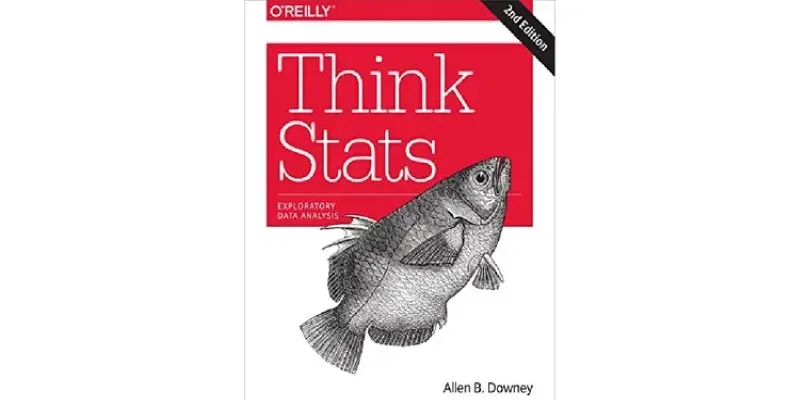Artificial Intelligence (AI) is revolutionizing vendor-customer interactions in e-commerce by introducing smarter, faster, and more personalized shopping experiences. By leveraging advanced algorithms, AI provides tailored product recommendations, efficient customer support, and streamlined transactions. This innovation enhances customer satisfaction and empowers businesses to optimize operations, drive sales, and stay competitive in the rapidly evolving digital marketplace.
Personalized Shopping Experiences
AI analyzes online behaviors and purchase histories to provide product recommendations that match each consumer’s preferences. This AI-driven solution enhances online shopping and saves customers time by showcasing relevant products, including those they might not have found otherwise.
Example: With AI-powered systems, if a customer frequently purchases hiking equipment, the system will suggest products that match their style, such as durable trail shoes, high-capacity backpacks, and weather-resistant jackets.
AI-Powered Chatbots and Virtual Assistants

Customer service is crucial for e-commerce success, and AI-powered chatbots significantly enhance how companies handle customer inquiries. Modern virtual assistants provide fast solutions, creating advanced customer satisfaction through immediate response times and minimizing wait periods.
24/7 Availability:
Unlike human agents who work scheduled hours, chatbots are available around the clock, ensuring customers can access assistance anytime, even during holidays or off-peak hours. This constant availability helps businesses meet global audience expectations and maintain seamless service.
Natural Language Processing (NLP):
Advanced AI chatbots use NLP technology to understand and respond to customer queries in a conversational, human-like manner. This capability allows them to handle complex questions, recognize context, and provide thoughtful, accurate responses, improving interaction quality.
Order Tracking & Returns:
AI assistants go beyond answering basic questions by helping customers track orders in real-time, initiate returns, and resolve common issues independently. This saves time for both customers and support teams, streamlining processes, reducing frustration, and boosting customer loyalty.
Enhanced Fraud Detection and Security
E-commerce platforms frequently battle threats like payment fraud, fake reviews, and account breaches, which can compromise revenue and erode customer trust. AI is a powerful tool for combating these challenges by detecting and preventing suspicious activities in real-time:
- Transaction Monitoring: AI systems analyze purchasing patterns, flagging anomalies that may indicate fraudulent transactions. By learning from historical data, AI can differentiate between legitimate and suspicious behaviors, helping prevent unauthorized payments before they occur.
- Fake Review Identification: Fake reviews can damage a platform’s credibility. Machine learning algorithms are trained to recognize patterns in reviews, such as repetitive language or unusual posting behaviors, that suggest they are not genuine. By flagging and removing inauthentic reviews, AI ensures customers rely on honest feedback.
- Biometric Authentication: AI-powered technologies, such as facial recognition and fingerprint scanning, provide additional security for login processes. These advanced methods reduce reliance on traditional passwords, making it harder for hackers to gain unauthorized account access.
Smarter Inventory and Supply Chain Management
AI optimizes inventory management by predicting demand, reducing overstocking, and preventing stockouts. This ensures vendors meet customer expectations without unnecessary delays.
- Demand Forecasting: AI analyzes historical sales data, seasonal trends, and market shifts to predict future demand accurately.
- Automated Restocking: AI systems trigger automatic reorders when stock levels drop below a threshold.
- Warehouse Automation: AI-powered robots streamline picking, packing, and shipping processes, improving efficiency.
Voice and Visual Search Optimization
The rise of voice assistants and image recognition technology has transformed how customers search for products online. AI enables seamless voice and visual searches, making e-commerce more accessible.
- Voice Search: AI-powered assistants like Amazon’s Alexa and Google Assistant allow customers to search for products using voice commands.
- Visual Search: Customers can upload images to find similar products, enhancing discovery and convenience.
Sentiment Analysis for Better Customer Insights
Understanding customer emotions and feedback is crucial for improving services. AI-driven sentiment analysis tools evaluate reviews, social media comments, and support interactions to gauge customer satisfaction.
- Real-Time Feedback Analysis: AI identifies positive and negative sentiments, allowing vendors to address concerns promptly.
- Trend Identification: Vendors can spot emerging trends and adjust strategies accordingly.
AI in Post-Purchase Engagement
The customer journey doesn’t end at checkout. AI helps vendors maintain engagement through personalized follow-ups and loyalty programs.
- Automated Follow-Ups: AI sends personalized thank-you emails, delivery updates, and feedback requests.
- Loyalty Programs: AI tracks customer preferences to offer tailored rewards and discounts.
Adaptive UX and Website Customization
AI can adapt the layout, design, and product display on an e-commerce website based on a visitor’s preferences or behavior. This adaptive experience ensures that users see the most relevant content from the moment they land on the site.
Whether it’s showcasing trending items, adjusting color schemes, or reordering product categories, these micro-adjustments lead to higher engagement and reduced bounce rates.
Supply Chain Optimization
A seamless supply chain is essential for timely delivery and customer satisfaction. AI enhances visibility across the supply chain, forecasting demand, detecting delays, and recommending alternative routes or suppliers when necessary.
This level of intelligence ensures that products reach customers faster and with fewer disruptions, reinforcing vendor credibility and reliability.
Hyper-Personalized Marketing Campaigns

AI enables businesses to craft marketing messages that resonate deeply with individual customers. By analyzing online behavior, engagement history, and preferences, AI can tailor email content, advertisements, and promotions to each user.
Instead of sending out generic campaigns, vendors can deliver specific offers, such as discounts on recently viewed items or reminders about abandoned carts. This targeted approach boosts engagement and increases the likelihood of conversion.
Conclusion:
AI is undeniably transforming vendor-customer interactions in e-commerce, making them more efficient, personalized, and secure. From AI-driven recommendations to automated customer support and fraud prevention, businesses that embrace these technologies gain a competitive edge.
 zfn9
zfn9























